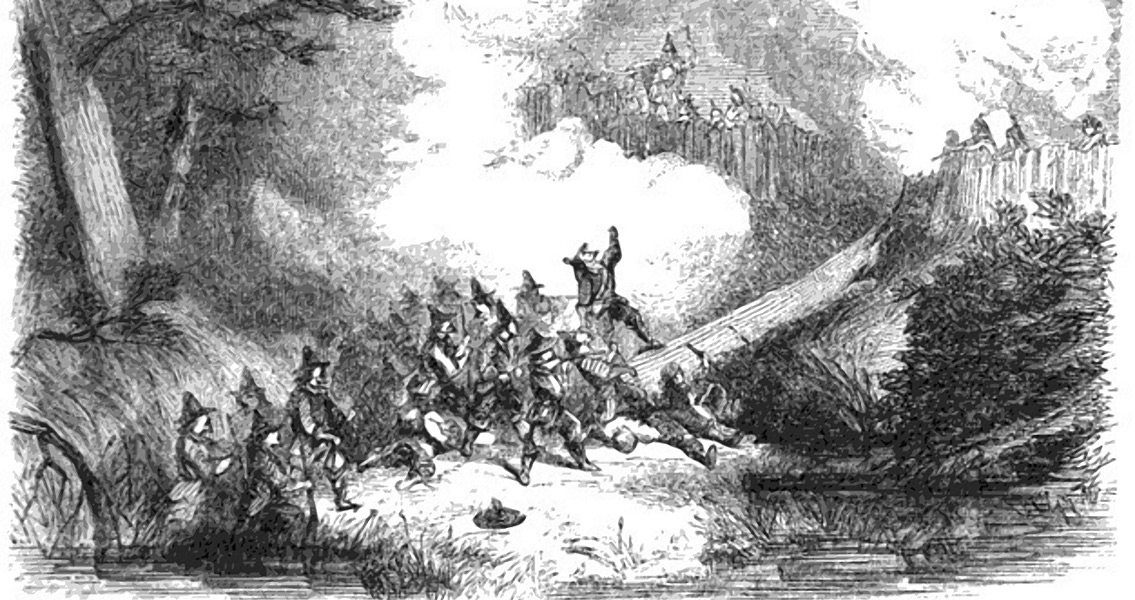<![CDATA[On 13th August, 1676, Metacom, the chief of the Wampanoag Tribe, was assassinated by a fellow Native American in the service of English Colonists. The event brought to an end the Metacom Rebellion, one of the most devastating wars between English Colonists and North America's indigenous inhabitants, a destructive conflict which had one of the highest per capita casualty rates in American history. Metacom was born sometime around 1638 in the village of Sowams in what is now Rhode Island. He was the second son of Massasoit, a Wampanoag leader who had befriended and assisted the first English pilgrims to land at Plymouth in 1620. Metacom took leadership of the Wampanoag tribe following the deaths of his father and older brother. When dealing with the English colonists he was given the name King Philip. (Many accounts refer to him by this name, and the war between the English colonists and the Wampanoags is often referred to as 'King Philip's War'.) Since the 1660s relations between the English Colonists and the Native American tribes in what is now New England had been steadily deteriorating. Setting out a pattern which would be repeated again and again, the settlers and indigenous people initially held a positive, cooperative relationship. As the settlers' desire for land increased however, they began to encroach further and further into Native American territory. The Native American tribes had become increasingly dependent on English goods, especially food and weapons. However, a declining fur trade meant that their bargaining power had decreased. Consequently, Native Americans were forced to sell tribal lands to the colonists to buy vital commodities, and the sense of English control over the region grew stronger. At the same time, Native American tribes were pushed into pledging their allegiance to the English settlers. Magistrates in Plymouth suspected that Metacom was plotting to ally with either the French or the Dutch to drive the English settlers out of New England. In 1671, Metacom was forced to pledge his allegiance to the English colonists to prove his loyalty. The pledge also forced Metacom to pay an annual tribute of £100 to the settlers, and for all Native American soldiers to hand over their weapons. These mounting tensions and resentments exploded in 1675 following the murder of John Sassamon, a Native American convert to Puritanism who served as a translator for Metacom. Three Native American warriors were executed for having murdered Sassamon, who Metacom had accused of being a spy. In response to the executions Metacom ordered a series of raids on English settlements, and the Metacom Rebellion began. Over the next year, both sides launched a series of raids on each other's territories - burning villages and killing the inhabitants. New England descended into a battleground, a situation further complicated by some Native American tribes siding with the Wampanoags, while others supported the English. At its heart the Metacom Rebellion was a reaction to continued English expansion into Native American territory and repeated attempts to subjugate the populations who had lived there for thousands of years. On that basis, the initial months of the conflict were impressively successful for the Wampanoags and their allies. The frontiers of the Massachusetts Bay and Plymouth colonies were pushed back, while all of the English settlements on the western side of the Bay of Rhode Island were torched, including Providence. Throughout early 1676 the colonists' armies slowly subdued Metacom's forces, and retook the land they had lost. Finally, on 12th August, Metacom was discovered at his secret hideout in Mount Hope, Rhode Island, and assassinated. The English colonists took his body and quartered it, before publicly displaying his head at Plymouth. The fourteen month Metacom Rebellion had been a brutal affair, leading to the destruction of twelve frontier towns and countless Native American villages. Just as significantly, it marked the last attempt by the Native American tribes to drive English settlers out of New England. ]]>
Metacom Rebellion Comes To an End
